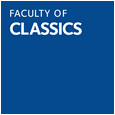Abstract
Qualities receiving public cult in Rome have too often been understood simply as incarnating ‘Roman virtues’. This book presents a critical new account of divine qualities (often misleadingly called personifications, abstracts, or virtues) in the Republic, as a lens through which to explore how Romans thought about themselves. It contends that the existence of cults to clementia, concordia, felicitas, fides, honos, libertas, mens, ops, pietas, pudicttia, salus, spes, virtus, or victoria does not illustrate the ‘Roman‐ness’ of these qualities in any simple way. Cult rather gave these qualities a particular tone or resonance. The resources generated through cult served as springboards for claims, counter‐claims, appropriations, and explorations, and it was these interactions that made divine qualities ‘Roman’. Mediated through oral, visual, and written symbols and attributes, divine qualities are found in contexts ranging from consular speeches to graffiti, festivals to passwords, plays to prodigies, coins to horti, temples to tombs, aristocratic competition to plebeian struggles for recognition, board‐games to brothels, and from Rome itself to its colonies and battlefields. The resonant language of divine qualities was far from confined to élites: its lexicon was used by, familiar to, and could make meaning for a very wide social spectrum, from emperors to slaves. Exploring this range of engagements with divine qualities, and examining ways of using them to order and challenge perceptions of the world, this book presents as full a picture as is now possible of this aspect of ‘Roman‐ness’, created as it was lived.



